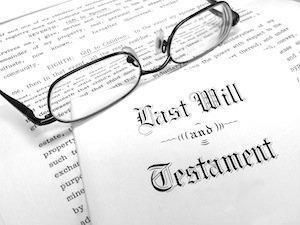Estate Planning: Is it Different for Women?
 Estate planning is important for both men and women. However, there may be different issues that women, specifically, need to address. Statistically, women have a longer life expectancy. And according to the U.S. Census Bureau, 36 percent of women 65 and older are widowed, while only 12 percent of men 65 and older have lost their spouse.
Estate planning is important for both men and women. However, there may be different issues that women, specifically, need to address. Statistically, women have a longer life expectancy. And according to the U.S. Census Bureau, 36 percent of women 65 and older are widowed, while only 12 percent of men 65 and older have lost their spouse.
Data also shows that women are more often the custodial parent of children and are often the caretaker for elderly parents or relatives, more so than men. Due to these differences, women have a different psychological approach to estate planning. They are so busy taking care of everyone else they "forget" to take care of themselves.
For married women, it is important to plan in the event that something happens to their husband, especially if the husband has been the major breadwinner during their marriage. It is also critical to know the type of estate planning the husband has put into place.
For example, how is the husband's pension plan set up? Many pension plans are set up so that if the retiree collects their full maximum benefit, the payments will stop upon the retiree's death, thus leaving the surviving spouse with $0 income coming in every month.
However, no matter what a woman's marital status is, it is critical that she have an estate plan. The first steps to forming one include:
- Naming a financial power of attorney who will make the financial decisions if the individual becomes ill or incapacitated;
- Naming a healthcare power of attorney who will make medical decisions if the individual becomes ill or incapacitated;
- Specifying end of life wishes;
- Naming a guardian for any minor children;
- Meeting with financial institution representatives to ensure that the titles of accounts are the best suited for financial needs; and
- Verifying that all beneficiaries for insurance and pensions are current.

 630-665-2500
630-665-2500







